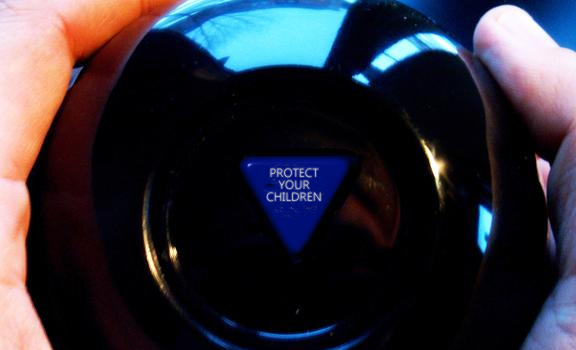These Are the Top Ten Most-Read SpecFaith Articles in 2019
Now that 2019 is behind us, I just ran the numbers and learned which top ten articles got the most reads last year.1
How haven’t we done this before?
Well, let’s do this for the first time.
BONUS: 11. Captain Marvel Left Me Baffled and Disappointed
Of course most of us here are MCU fans. But the Marvel fandom felt it when Captain Marvel powered up the universe with no small controversy, and even negative reviews from good-faith reviewers. This included Marian Jacobs, who couldn’t help not praising Carol Danvers, but instead pitying the heroine:
. . . There’s no need to pick on Brie Larson. Anyone who has seen the film Room will know she’s an amazing actress. This is a Marvel problem.
So let’s just say it straight: the writing for this film was a mess. They pitched Danvers’ character arc as first being abused by her so-called commander, Yon-Rogg. He told her repeatedly to suppress her emotions in order to have success in battle. And yet this was not believable. What emotions? She had some simmering-below-the-surface moments here and there, but was she a highly emotional female? Not even close. With a couple small (too small given the situation) emotional spikes when she learned more of her own backstory, Danvers remains, well . . . stoic throughout the entire film.
10. Why Rick Killed King Jellybean: Exploring ‘Rick and Morty’
This 2018 review from Parker J. Cole drew plenty more fans—presumably Rick and Morty web-searchers—last year.
Many Christians, and theists for that matter, would postulate the idea that a multiple universe, realities, and etc., would point to signs of a Creator. Although I do not believe a multiverse exists, I’m not completely against the idea because it would still have to come from the mind of our Creator, the God of the Bible. What the creators of the show want to show is that nothing matters. We’re not important. Dealing with tragedy and difficult situations have to be dealt with by either acknowledging our lives have little meaning or that in a different reality, your choices would be different and it wouldn’t matter in that world either. Instead of showing the awesomeness of a God who can create the complexities of a multiverse, instead, through nihilistic existentialism, they say, “See, there are a million of you in different realities. Who cares?”
9. Should Christians Enjoy Fantasy?
That’s just a fantastic, simple, very search-engine-indexable title from Pam Halter. So no wonder it trended again, despite being from 2014.
As Christian readers, how do we choose a fantasy novel to read for enjoyment? How well do we know ourselves? What can you handle in a speculative novel? Do we only read Christian spec? Is there good fantasy in the general market? How do we know what’s good and what’s not? Once you read something, it’s there in your brain – forever. Scripture tells us to think about “whatever is true, whatever is noble, whatever is right, whatever is pure, whatever is lovely, whatever is admirable …” (Philippians 4:8) Are there fantasy novels like that? Of course, there are. Lots of them. If you love speculative fiction, do your research. Ask your friends. Read reviews. If you pick a novel and it doesn’t sit right with you, stop reading it. Yes, I heard some of you gasp. Stop reading a novel? Sacrilege! But if the Holy Spirit is poking you in the gut, yes, stop reading. Stop watching that movie. Stop going to that blog or website. It’s really okay.

8. ‘Game Of Thrones’ Sex: It’s Not Just Awkward, It’s Violation
Cap Stewart’s 2017 article trended again as the Game of Thrones TV series ended. Meanwhile, more Christians (including more Christian leaders) began sharing their concerns about the series’s indulgent exploitation. And more actors began sharing their real thoughts.
Game of Thrones is emblematic of a widespread moral epidemic. Sex is sacred, and yet we’re willing to put up with sexual sacrilege and manipulation of other human beings, so long as it provides us with a cathartic experience. The love we are to show to our neighbor, even at the expense of our own freedom, is mysteriously absent.
Taking into account how much sexual degradation actors go through for our amusement, I find it concerning that so many people—especially professing Christians—would not only excuse, but also defend such content.
 7. 2019 Spec Faith Summer Writing Challenge
7. 2019 Spec Faith Summer Writing Challenge
You folks love these writing challenges, and this is the first of several related articles to appear in the 2019 top-ten list. Rebecca LuElla Miller has been hosting these challenges twice every year! (The newest one is just out.) So of course, this second such challenge last year drew many readers, and of course writers who threw in their creative hats to finish this line:
Jag couldn’t be a part of the rebellion any more—not with what he knew now—but could he convince the other rebels to lay down their arms?
6. Finalists – 2019 Spec Faith Winter Writing Challenge
And this update from last year’s first writing challenge (again from Rebecca LuElla Miller) was widely read:
Special thanks to all who entered and all who gave their feedback in the preliminary round. We had some that came so close to making the finals—it was hard for me to follow the rules for the contest and include only three in this poll.
- Sarah Daffy
- Jay DiNitto
- L. G. McCary
By the way, the eventual winner was Sarah Daffy.
 5. Six Christian White Magic Spells Worse Than Fantasy Magic
5. Six Christian White Magic Spells Worse Than Fantasy Magic
Here’s one of my articles. It’s from 2016. It still stays evergreen, probably and partly thanks to that provocative title. If I redid that, I’d grace it up a bit by putting “white magic” in quotes. But it remains true that even many thoughtful Christians, who keep guard against evil black magic (legit and otherwise) walking boldly up to the front door, just can’t seem to catch the very same occult practices disguised as light-angels sneaking in the back way:
God never establishes a magic system.
God never promised us that if we do X, we’ll achieve some reward—health or wealth, protection from evil influence, personal guidance, romance, or popularity in the world.
Instead He promises something better: Himself, with grace to meet every challenge.
What if we reject His real promises and substitute our own? What if we blame other things as if they are the worst sources of occult magic—things like fantasy stories? Then we’re not being spiritual or biblical. We’re acting like practitioners of the occult. Dare I say it, we’re acting like the diviners and sorcerers God has promised will not inherit eternal life.
4. Analysis Of ‘Hell Is The Absence Of God’ By Ted Chiang, Part 1
Almost every day I see this article appear in the “top searches” panel. This despite the fact that it’s one of our first-ever articles, from the old site’s archive. It dates back to 2006, by then-SpecFaith regular writer Mirtika Schulz:
This novelette won the Hugo and the Nebula awards. And what an exhilaratingly plotted story with a horrifying and perplexing and brilliant and vexing conclusion. It’s a complicated story told in a clean, simple prose. . . .
The “what if” behind it is simple: What if Hell, Heaven, Angels, and God were a reality, something factual, something you saw and experienced and that got reported on the news? What if faith was removed from the equation, because there was no longer room for doubt? What would the world be like? What would individual human reaction to the world be like?
When I kept seeing this article reappear, I did some research and discovered:
- SpecFaith’s article appears as the seventh result whenever people search for the story.
- That’s likely why the article has proven so popular.
- The author, Ted Chiang, also wrote a novella called “Story of Your Life.”
- That story was adapted for the screen under a different title for the 2016 science fiction film Arrival (with Amy Adams).
This makes me wonder what other amazing articles from SpecFaith’s early days might also have such staying power. Alas that some articles from that earlier version of the site (pre–2009) were lost. That site’s platform was an old and buggy blogging engine. Its content would not have easily transferred to the new host (and would have required hours and hours of manual conversion).
 3. Standing Up to the YA Fantasy Impuritans
3. Standing Up to the YA Fantasy Impuritans
This is just the sort of guest article SpecFaith readers love. And guest writer L. Jagi Lamplighter did not disappoint in her firm yet gracious rebuke of “YA Twitter” activists. She identified the bullying, legalistic impulse behind these activists, who try to rally moralistic mobs on social media to “cancel” certain novelists—such as Amelie Wen Zhao—whom the aspiring moralizers find problematic.
If we modern Christians give way to this mob mentality of immorality and outrage, rather than standing up to those who abuse the truth, we could lose our promised land. America has been a promised land in many ways—a place of freedom and human dignity. These benefits have been vanishing in recent years, not because some tyrant has taken them from us with bayonets, but because we are ceding the willingly, due to the insistence of the Impuritans.
Amelie Wen Zhao has had her promised land, the happy future she had envisioned since she was eight years old, snatched from her. If we continue to allow this to happen, we, too, may find that we have lost ours.
 2. ‘Sorry Your Dragon Show Ended Stupidly’ Meme May Insult ‘GOT’ Fans
2. ‘Sorry Your Dragon Show Ended Stupidly’ Meme May Insult ‘GOT’ Fans
Here’s another of my articles, this one from the actual current year. It left me in the unhappy place of saying something positive about people’s show, which I would never fault for being a “dragon show” but for being a naked show. Still, I found myself laughing at a short-lived meme trend before I realized that this may actually show a disrespectful attitude toward fantasy as a genre and its fans as people:
If we share the “sorry your dragon show . . .” meme, with that phrase, fantasy fans might actually hear an echo like this:
- I don’t care about the stories you’re interested in.
- Fantasy is intrinsically shallow, absurd, and stupid.
- By not caring about the stories you like, I care little about you.
- Hey, nerd! Put down your dopey comics and pay up yer lunch money. Haw, haw!
I kid with that last bit. But honestly, the “dragon show” part could sound like plain bullying. I see those non-fantasy “jocks”—possibly wearing ’90s faded-denim cutoff shorts and backward-turned baseball caps—harassing the “nerd” with thick glasses and knee-high socks.
 1. 2019 Spec Faith Winter Writing Challenge
1. 2019 Spec Faith Winter Writing Challenge
And last year’s unquestioned winner (atop from the homepage) was the intro to Rebecca LuElla Miller’s first 2019 writing challenge.
Nearly 300 commentators competed to continue or offer feedback for this starter sentence:
The guard would never let me enter if he knew what I was planning.
Again, the direct sequel just arrived yesterday. So why not go make that article the potential winner for the top ten most-read SpecFaith articles in 2020?
Thanks for reading Speculative Faith last year, and presumably long before and long after then.
For my individual part, thanks also for reading and subscribing to Lorehaven magazine, which will have its own update before long . . .
Godspeed in 2020!
Stephen

- Some of these are older articles that trended again more recently. ↩










































Interesting how many were not actually written in 2019! The “evergreen” factor is bigger than I would have imagined for some articles.
[…] All of these are based on my article, These Are the Top Ten Most-Read SpecFaith Articles in 2019. […]